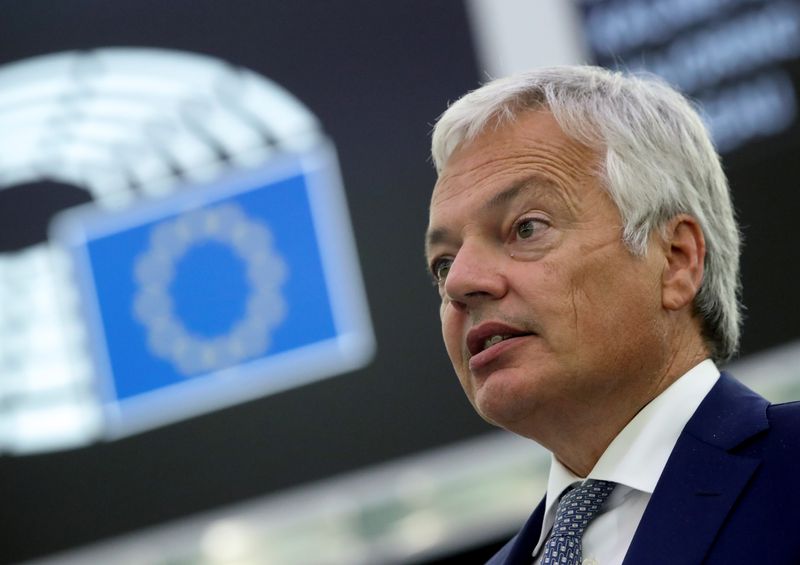Exclusive-Poland needs time to fix judiciary before EU money flows, says EU official By Reuters


© Reuters. FILE PHOTO: European Justice Commissioner Didier Reynders addresses the European Parliament plenary session in Strasbourg, France September 15, 2021. REUTERS/Yves Herman/Pool/File Photo
By Gabriela Baczynska
BRUSSELS (Reuters) – Poland’s new government needs “some time” to improve the independence of the judiciary so the European Union can disburse more funds, the bloc’s top justice official said as Warsaw vows to restore the rule of law and seeks billions in handouts.
Poland’s new Prime Minister Donald Tusk met with the EU’s chief executive on Friday and announced that the bloc would transfer a first 5 billion euros ($5.5 bln) of aid that was until now mostly frozen over democratic backsliding.
The comments by Justice Commissioner Didier Reynders suggest it could take weeks or months to unlock Poland’s access to further funds.
“There is the commitment. The message is very important about the rule of law,” he told Reuters in an interview. “But that is not enough. We need to see the reforms. That will take some time.”
Reynders named ending proceedings against judges by a contested disciplinary chamber as an example of a fix that did not require passing a new law, something Tusk backers worry the country’s president – an ally of the previous government – might veto.
The 5 billion euros of aid comes free of the EU’s usual rule of law conditions and is part of Poland’s 60-billion-euro chunk of the bloc’s COVID recovery stimulus.
Warsaw said it applied for another 7 billion euros but needs to make strides towards meeting the bloc’s democratic requirements to get it.
The same goes for a further 75 billion euros worth of development assistance assigned for Poland under the EU’s shared 2021-27 budget, which Warsaw was unable to access under Tusk’s predecessors due to fights with the bloc over democratic rights.
Poland’s previous government carried out a deep overhaul of the judiciary during its eight years in power.
The EU and international watchdogs criticised Warsaw for putting courts and judges under political influence and hence damaging democratic checks and balances.






